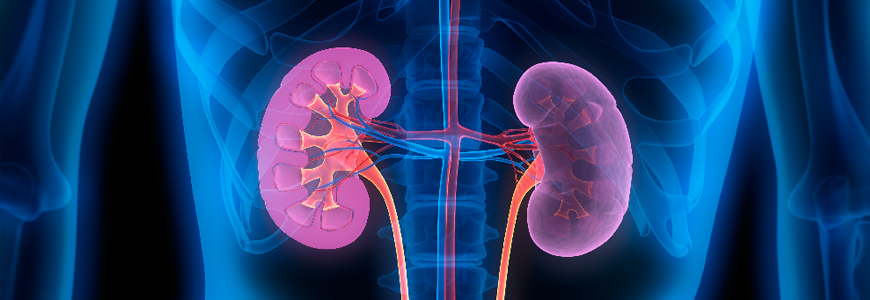A Duke researcher who studies the effects of an apolipoprotein L1 (APOL1) genetic mutation on kidney disease among individuals of West African ancestry urges nephrologists to order genetic tests when clinically appropriate and adopt an aggressive treatment approach for patients with the mutation.
Opeyemi Olabisi, MD, PhD, a nephrologist and researcher with the Duke Molecular Physiology Institute, described the risks of the mutation in a paper published in September in the Journal of the American Society of Nephrology.
The research highlights the link between APOL1 alleles G1 and G2 and the high incidence and rapid progression of chronic kidney disease (CKD) among black patients. A $300 test would help clinicians identify genetic risk sooner and expand treatment options, including transplantation.
The risks to patients are not yet well understood, Olabisi says. The greatest CKD risk is present in 13% of the West African ancestry population with two copies of the genetic variant. Approximately 45% of that population have a single mutation, he says, and a lower risk of kidney disease.
“Just 15 years ago, if an assessment of a black patient identified high blood pressure and proteinuria, the next question would be about medications,” he says. “If the patient is not particularly compliant, you check kidney function. If that function is low, you do a biopsy.
“And if that patient has focal segmental glomerular sclerosis (FSGS), the clinician will assume the hypertension caused kidney failure. Now we know differently.”
APOL1 genetic tests have changed the approach to kidney disease among black patients, particularly for those with non-diabetic disease. Patients with the mutation have a higher risk of developing kidney disease, Olabisi says. “And, unfortunately, they are fast-tracked to dialysis, reaching that point 10 years sooner. If they have the mutation, the kidney burns out quickly. Knowing this factor helps us anticipate and plan treatment.”
The genetic test is not yet routine, Olabisi notes. “The cost is about $300 out of pocket. Unfortunately, it’s still not easy to get the test, and we think that should change based on the number of people who have this mutation and the implications of those numbers for public health.”

